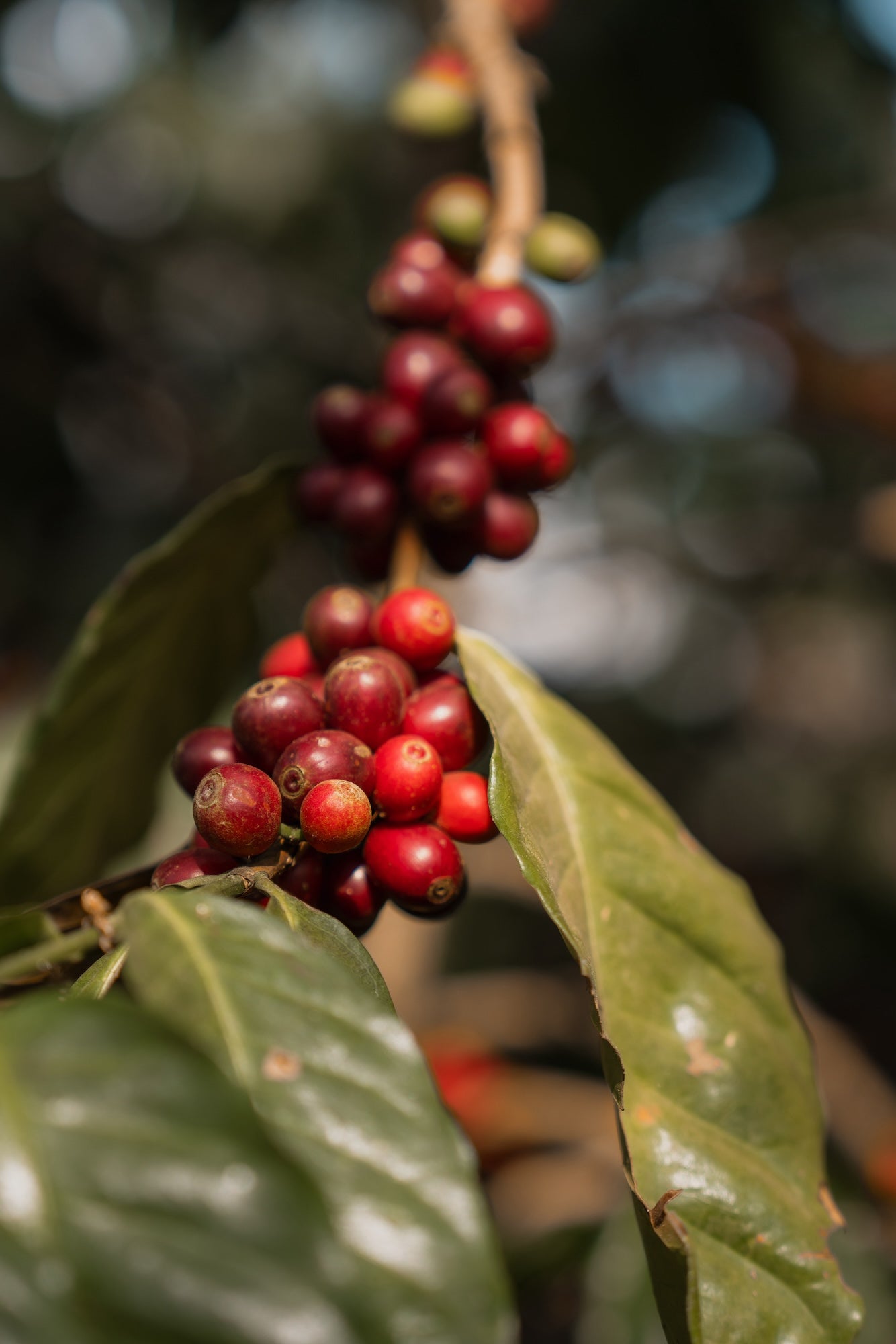Alexandre, head roaster at Café Pista, has just returned from a trip to Espirito Santo, Brazil. He shares with us his impressions and discoveries, as well as the challenges faced by local producers. In this interview, he reveals the underside of coffee production in one of the most famous regions of the country.

Hi Alexander! You just came back from Brazil. Why was this trip to Espirito Santo so important for you and Café Pista?
Hi ! This trip was an opportunity to discover a region that produces some of the best coffee in Brazil. Unlike other parts of the country, where natural coffees are predominant, Espirito Santo is known for its washed coffees. This results in clearer, fruitier and more complex flavor profiles. The aim was to better understand their production methods and strengthen our links with local producers through our partner Osito Coffee.

What were your first impressions upon arriving at Espirito Santo?
It is a magnificent region with breathtaking landscapes, but from the first conversations with the producers, we realize that the situation is not simple. This year, the weather conditions are particularly difficult. There has been very little rain, and this has had a huge impact on the harvest. We are talking about a drop of almost 60% for 2024. This has direct repercussions on the quality of coffee, which is normally exceptional in this region. This year, many batches are around 77 points on the SCA scale, while the norm is more like 82.
Tell us a little about the producers you worked with. How do they manage these challenges?
Producers are incredibly resilient. Many of them not only grow coffee, but also fruits like papaya, banana and even cocoa. I discovered a local fruit, “Jabuticaba”, which is fascinating – it looks like a cherry, but the taste is very sweet with a sour skin.
Family farms do better because the whole family contributes to the harvest. Some producers use a system of sharing land with their workers to compensate for the lack of labor. This system allows for a division of labor and guarantees a more efficient harvest, even in difficult conditions.
You mention the impacts of climate. What other challenges have you observed in the field?
The lack of rain is enormous, but that’s not all. The climate causes coffee cherries to flower earlier, speeding up their ripening. Unfortunately, some cherries dry out on the tree before they are even picked, which affects their quality.
There is also another problem: mushrooms. When the skin of cherries cracks from rapid drying, fungus can lodge in them, making the coffee taste moldy. It can ruin an entire harvest.
The lack of labor is also a big concern. With current Robusta coffee prices, workers prefer to focus on this variety because it is easier to harvest than Arabica. This affects the overall quality of the Arabica crop, as there is less care taken in picking.

And in terms of solutions? Have you seen any promising initiatives to overcome these obstacles?
Yes, several producers have adopted land sharing systems, as I mentioned. This ensures a more reliable workforce. Others try to diversify their crops away from relying solely on coffee, which helps them compensate for the decline in quality or quantity of the coffee harvest.
Osito Coffee is also trying to bring a new approach, asking producers how much they want to receive for their coffee rather than simply negotiating market prices. This helps build a relationship of trust between producers and roasters.
What struck you the most during this trip?
It’s fascinating to see how innovative and resilient producers are in the face of climate challenges. They don't give up. And despite all the difficulties, they still manage to produce incredible coffees. I also came away with a better understanding of the effort it takes to ensure a quality cup of specialty coffee – every step, from ground to cup, is crucial.
Thank you for sharing this, Alexandre. Any final words for specialty coffee lovers?
I would just say savor each cup with gratitude! Behind every bag of coffee there are months of hard work and true passion from the producers. It is an honor to be able to support this work through Café Pista.


1 comment
Très beau reportage, il nous sensibilise encore plus aux difficultés de l’environnement et aux nouveaux obstacles que les producteurs rencontrent. Encore plus que jamais, il faut apprécier chaque tasse avec beaucoup plus de gratitude.